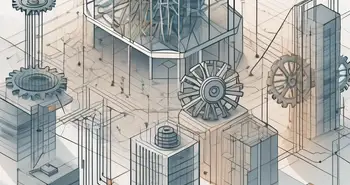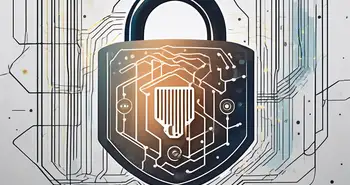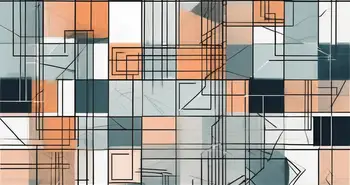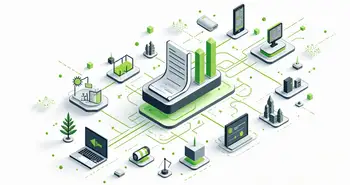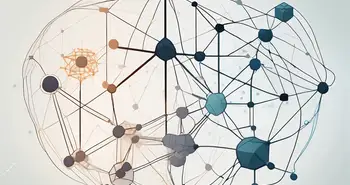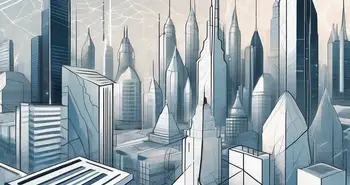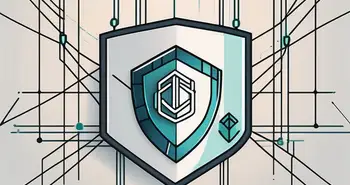An In-depth Explanation of DAO: Decentralized Autonomous Organizations

Throughout history, organizations have evolved and adapted to changes in society and technology. The advent of blockchain technology has brought about a revolutionary concept known as Decentralized Autonomous Organizations (DAOs). In this article, we will delve into the intricate details of DAOs, explore their potential and challenges, and discuss their impact on traditional organizations.
Understanding the Basics of DAO
A Decentralized Autonomous Organization, or DAO, is an organization that operates on a decentralized blockchain network. Unlike traditional organizations, which are governed by centralized authorities, DAOs rely on cryptographic protocols and smart contracts to execute business processes. These organizations are autonomous in nature, meaning that they can operate independently without the need for human intervention.
DAOs have gained significant attention in recent years due to their potential to revolutionize industries and reshape the way organizations function. By leveraging blockchain technology, DAOs offer a transparent, secure, and efficient way to manage and govern various aspects of an organization.
What is a Decentralized Autonomous Organization?
A Decentralized Autonomous Organization, or DAO, is an organization that operates on a decentralized blockchain network. Unlike traditional organizations, which are governed by centralized authorities, DAOs rely on cryptographic protocols and smart contracts to execute business processes. These organizations are autonomous in nature, meaning that they can operate independently without the need for human intervention.
DAOs have gained significant attention in recent years due to their potential to revolutionize industries and reshape the way organizations function. By leveraging blockchain technology, DAOs offer a transparent, secure, and efficient way to manage and govern various aspects of an organization.
DAOs are designed to be democratic and inclusive, allowing anyone to participate and contribute to the decision-making process. This decentralized approach ensures that power is distributed among the members or token holders, eliminating the need for a central authority. This not only promotes fairness but also reduces the risk of corruption and manipulation.
The Fundamental Principles of DAO
At the core of DAOs lie several fundamental principles. First and foremost is decentralization. DAOs distribute decision-making power and ownership among its members or token holders, eliminating the need for a central authority. This decentralized approach ensures that no single entity has control over the organization, promoting fairness and inclusivity.
Transparency is another key principle of DAOs. All transactions and activities within a DAO are recorded on the blockchain, making them visible to the public. This transparency not only fosters trust among the members but also allows for greater accountability and auditability.
Lastly, DAOs adhere to code or rule-based governance. Smart contracts, which are self-executing contracts with the terms of the agreement directly written into the code, enforce the agreed-upon rules within a DAO. This ensures that actions are executed based on predetermined conditions, eliminating the need for human intervention and reducing the risk of human error or bias.
By embracing these fundamental principles, DAOs aim to create a new paradigm of organizational structure and governance. They have the potential to empower individuals, foster collaboration, and drive innovation in a decentralized and transparent manner.
The Evolution of DAOs
The Genesis of DAOs
The concept of DAOs originated with the release of the Ethereum blockchain platform in 2015. Ethereum introduced smart contracts, enabling the creation of decentralized applications (dApps) and DAOs. The first major DAO project, known as “The DAO,” raised a massive amount of funds through a token sale. However, it faced a significant setback due to a security vulnerability, leading to a controversial hard fork of the Ethereum blockchain.
The Progression and Development of DAOs
Since the inception of The DAO, DAOs have evolved significantly. Developers and entrepreneurs have learned valuable lessons from past experiences, leading to the development of more robust and secure DAO frameworks. Various platforms, such as Aragon, DAOstack, and Colony, have emerged, offering tools and frameworks to create and govern DAOs more efficiently. These advancements have paved the way for a new era of decentralized and autonomous organizations.
The Structure of a DAO
The Role of Smart Contracts in DAOs
Smart contracts play a crucial role in the structure of a DAO. They act as self-executing programs that automatically execute predefined actions when specific conditions are met. In the context of a DAO, smart contracts handle tasks such as token distribution, voting mechanisms, and dispute resolution. By utilizing smart contracts, DAOs can ensure transparency, trust, and efficiency in their operations.
Governance in DAOs
Governance is a key aspect of DAOs, as it determines how decisions are made and implemented within the organization. Unlike traditional organizations with hierarchical structures, DAO governance relies on stakeholder voting. In this democratic system, members vote on proposals through token-based mechanisms. This enables DAOs to make collective decisions and ensures that no single entity possesses excessive control over the organization.
The Potential of DAOs
The Impact of DAOs on Traditional Organizations
DAOs have the potential to revolutionize traditional organizations. By removing centralized intermediaries, DAOs can create more efficient and transparent systems across various industries, such as finance, supply chain, and governance. These organizations can operate on a global scale, allowing for collaboration and participation without geographical limitations. Traditional organizations are starting to recognize the benefits of DAOs and exploring ways to integrate them into their structures.
Future Prospects of DAOs
The future of DAOs is brimming with possibilities. As blockchain technology continues to advance, DAOs are likely to become more accessible, scalable, and secure. The integration of artificial intelligence and Internet of Things (IoT) devices could further enhance the efficiency and autonomy of DAOs. We envision a world where individuals and communities can actively participate in shaping the organizations they are a part of, thus fostering a more inclusive and equitable society.
The Challenges and Controversies Surrounding DAOs
Security Concerns in DAOs
While DAOs offer great potential, they are not without challenges. Security vulnerabilities have been a significant concern in the past, as demonstrated by the infamous attack on The DAO. However, advances in auditing and security practices have made DAO frameworks more secure. Continuous improvement and rigorous testing are essential to mitigate potential risks and ensure the safety of DAO participants.
Ethical and Legal Implications of DAOs
As DAOs continue to evolve, ethical and legal questions arise. The absence of centralized authority and reliance on code-based governance can raise concerns about accountability and decision-making. Regulators and policymakers are grappling with these implications to strike a balance between innovation and protection of stakeholders. It is crucial for the DAO community to actively engage in discussions and work towards robust frameworks that address ethical and legal considerations.
Advice from an Expert
As an expert in the field of DAOs, I have witnessed the tremendous potential and disruptive power of these organizations. My best advice to anyone interested in exploring DAOs is to actively participate and engage with the community. DAOs thrive on collective intelligence and participation, and your input can create a significant impact. Additionally, it's essential to stay informed about the latest advancements and best practices in the DAO space to make informed decisions and navigate the challenges that may arise.
FAQ
What is a DAO?
A Decentralized Autonomous Organization, or DAO, is an organization that operates on a decentralized blockchain network. It relies on cryptographic protocols and smart contracts to execute business processes, eliminating the need for a central authority.
How do DAOs make decisions?
DAOs make decisions through stakeholder voting. Members of the organization vote on proposals using token-based mechanisms to decide on various matters such as governance rules, project funding, and dispute resolutions.
Can DAOs integrate with traditional organizations?
Yes, DAOs have the potential to integrate with traditional organizations. Traditional organizations can recognize the benefits of transparency, efficiency, and decentralization offered by DAOs and explore ways to incorporate them into their existing structures.
Are DAOs secure?
While DAOs have experienced security vulnerabilities in the past, continuous improvements and rigorous auditing processes make DAO frameworks more secure. It is crucial to follow best security practices and conduct thorough audits to protect the participants and assets within a DAO.
What are the ethical and legal implications of DAOs?
The decentralized and code-based nature of DAOs can raise ethical and legal concerns. Questions around accountability, decision-making, and regulatory compliance are being actively discussed by policymakers and participants in the DAO ecosystem to ensure ethical and legal considerations are addressed appropriately.
As we explore the transformative potential of Decentralized Autonomous Organizations, it's clear that the future of investing and organizational governance lies in blockchain technology. Embrace this future with Morpher, a revolutionary trading platform that embodies the principles of DAOs. With Morpher, you can experience zero fees, infinite liquidity, fractional investing, and the safety and control of a non-custodial wallet. Whether you're looking to trade stocks, cryptocurrencies, forex, or even unique markets like NFTs, Morpher offers a unique trading experience with up to 10x leverage. Sign Up and Get Your Free Sign Up Bonus today to join the vanguard of investors who are shaping the future of decentralized finance.

Disclaimer: All investments involve risk, and the past performance of a security, industry, sector, market, financial product, trading strategy, or individual’s trading does not guarantee future results or returns. Investors are fully responsible for any investment decisions they make. Such decisions should be based solely on an evaluation of their financial circumstances, investment objectives, risk tolerance, and liquidity needs. This post does not constitute investment advice.

Painless trading for everyone
Hundreds of markets all in one place - Apple, Bitcoin, Gold, Watches, NFTs, Sneakers and so much more.

Painless trading for everyone
Hundreds of markets all in one place - Apple, Bitcoin, Gold, Watches, NFTs, Sneakers and so much more.

